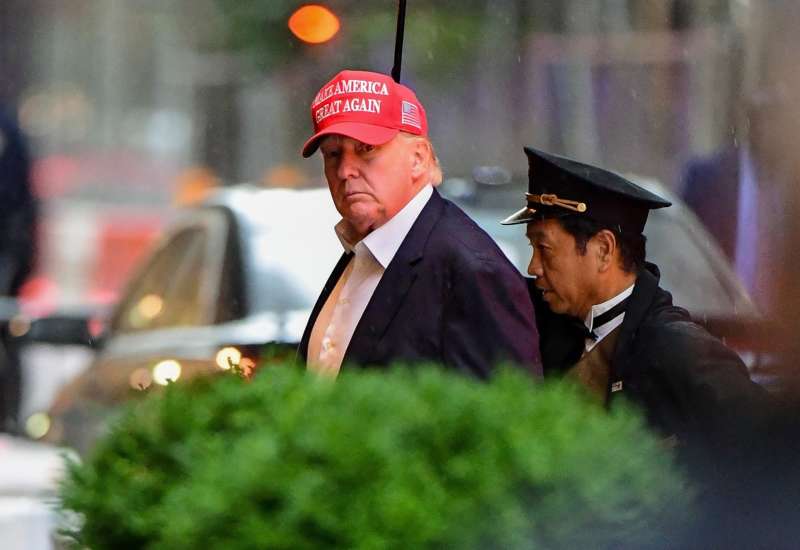Former President Donald Trump responded to requests by the January 6 commission to various departments in the federal government for records of his communications by saying he would invoke his executive privilege to stop them from doing so.
January 6 commission chair Rep. Bennie Thompson (D-Mississippi) sent a written request this week to the National Archives, the Department of Homeland Security, the Department of Justice and five other entities, seeking records of communications between Trump and other Republicans on the day a mob of his loyalists stormed the U.S. Capitol building. The commission is attempting to obtain information that could answer questions regarding the involvement of Trump and GOP lawmakers in the attack.
“Our Constitution provides for a peaceful transfer of power, and this investigation seeks to evaluate threats to that process, identify lessons learned and recommend laws, policies, procedures, rules, or regulations necessary to protect our republic in the future,” Thompson said in his request to those agencies.
Responding to that request on Wednesday, Trump said he would take action to block the transfer of those records to the commission, stating that he will use his powers as a former president in order to do so. He also claimed that the current administration would back up his claims.
“Executive privilege will be defended, not just on behalf of my Administration and the Patriots who worked beside me, but on behalf of the Office of the President of the United States and the future of our Nation,” Trump said in a statement.
The former president didn’t explain in the statement how that would come about, CNN reported, especially since the Biden administration has previously said it would not assert executive privilege on behalf of Trump with regard to the January 6 commission’s work.
Federal regulations allow former presidents to assert executive privilege to keep their communications while they were in office private. The regulations, however, allow the current president to overrule previous presidents’ claims to assert such privilege in protecting their records.
Experts said that the matter would likely go to the courts, but that Trump’s strong insistence on keeping his communication records out of the commission’s hands was telling.
“There’s a legitimate scope of executive privilege, which ensures a president gets candid, thorough advice,” said Joyce Alene, a former U.S. attorney and legal analyst for NBC News. “But it doesn’t extend to covering up efforts to keep the new president from taking office. Trump’s desperation to keep info secret says it all.”
CNN legal analyst Elie Honig noted that the issue of Trump’s executive privilege claims could take some time to be resolved.
Trump is “going to lose if he tries to fight it in court,” Honig said. “But you know what he’s going to do? He’s going to make it a mess, and he’s going to drag it out.”


